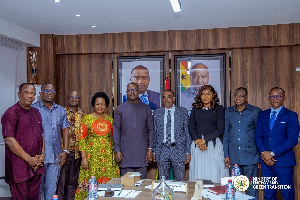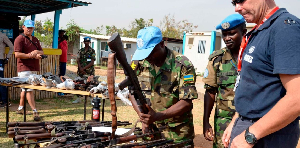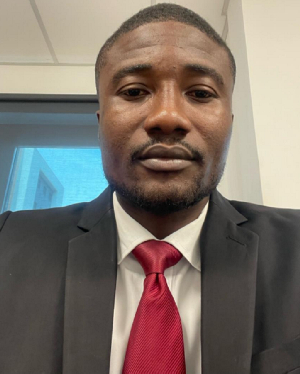Sunday March 22 is World Water Day and the World is preparing to celebrate this day in Unity. Since 1993 when the United Nations General Assembly declared 22 March as “World Day for Water”, several nations have made efforts to undertake various reasonable activities to protect water as life of its people.
In Ghana, not much can be said of conscious efforts the people and government are making to protect and preserve water which remains at the core of every country’s socio-economic and sustainable development.
In spite of recent government interventions that have seen areas like Adenta, East Legon, Ashaley Botwe, Haatso and Dodowa, all in the Great Accra region have water running through their pipes after several years of ‘drought’, the issue of intermittent supply, high water losses and low water pressure remains a challenge to the country.
While efforts are being made to tackle these challenges one step at a time, the Ghanaian populace continues to inflict itself with unintelligible acts such as fishing with poisonous chemicals including DDT, illegal mining popularly known as gallamsey and disposing liquid waste directly into the sea. These practices among others pose deep threat to the country’s sustainable development.
According to the January 1992 Dublin Statement on Water and Sustainable Development;
“Scarcity and misuse of fresh water pose a serious and growing threat to sustainable development and protection of the environment. Human health and welfare, food security, industrial development and the ecosystems on which they depend, are all at risk, unless water and land resources are managed more effectively in the present decade and beyond what they have been in the past.”
In view of this, what the document proposed among other things was that water be viewed as an economic good because it has economic value. It also stated that Water development and management should be based on a participatory approach, involving users, planners and policy-makers at all levels. The document further noted that fresh water is a finite and vulnerable resource, essential to sustain life, development and the environment.
In relating the vital information provided by the document to Ghana’s local situation, it appears the nation is headed for dangerous times.
There is no doubt that Ghana is well endowed with water resources. The Volta river system basin, consisting of the Oti, Daka, Pru, Sene and Afram rivers as well as the white and black Volta rivers, covers about 70% of the country area. Another 22% of Ghana is covered by the southwestern river system watershed comprising the Bia, Tano, Ankobra and Pra rivers.
Management of these resources have been a different issue altogether. A recent hard-hitting video report (https://www.youtube.com/watch?v=j6qaiPSbZsQ) by journalist and movie producer Edem Srem that exposed misleading claims by the government in Ghana to have eradicated the risky practice of alluvial gold mining popularly known as gallamsey; a practice that greatly polluted most of Ghana’s major water bodies is one act that reveals the actual happening on the ground. Authorities in Ghana are slowly losing grips of the fresh water system. It is alarming the level of pollution ongoing on some of the major rivers in the country that serve as the sole source of water for domestic use in most communities.
The happenings although have received several explanations and details about the modus operandi of polluters, speculations of some government ‘big names’ okaying and supporting the act, there is no need for denial or confirmation but positive action. Positive action to safeguard Ghana’s water resources and ensure the health of Ghanaians is not compromised, the occupation of fisher folks is not jeopardized and the aquatic ecosystem disharmonized.
“Water is a finite and irreplaceable resource that is fundamental to human well-being. It is only renewable if well managed.”
The current trend of water pollution is estimated to see two-thirds of the world’s population living in water-stressed countries by 2025. Water can pose a serious challenge to sustainable development but managed efficiently and equitably, water can play a key enabling role in strengthening the resilience of social, economic and environmental systems in the light of rapid and unpredictable changes.
Happy World Water Day!
Communications Team, GYEM
0262 121225
0541 688 618
General News of Sunday, 22 March 2015
Source: Jonas Nyabor












